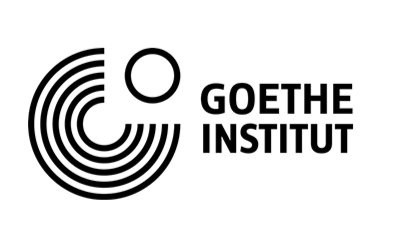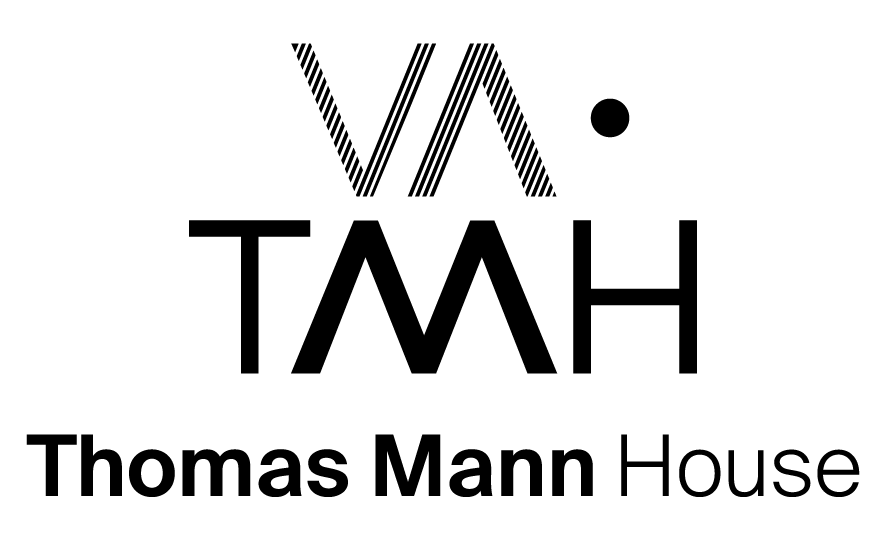Listening to Exile
A concert series by Thomas Mann House with 1014 - space for ideas, Austrian Cultural Forum New York, Goethe-Institut New York, and Leo Baeck Institute - New York | Berlin.
Four Days of Concerts and talks
Freedom of the arts is essential for any democracy, but what role do the arts play when democracies come under pressure? Through four concerts and talks in New York City, the program will indulge in the works and stories of composers who went into exile, sharing their music, and asking how democracies and the arts relate today.
In cooperation with the Manhattan School of Music. This festival is generously supported by the Friends of Freiburg University, New York.
Program
Please register for each event individually
April 16, 2024, 6:30 PM
OPENING TALK & RECEPTION: OPERA IN EXILE
Goethe-Institut New York, 30 Irving Place, New York, NY 10003
Welcome & Keynote: “Opera and Democracy” by Kai Hinrich Müller followed by a conversation about the past and present of being forced out of a country or a home and the struggles to continue artistic practices elsewhere.
Brigid Cohen, Associate Professor of Music at New York University. She has taught and published on the politics of 20th-century avant-gardes, archive studies, diaspora and cosmopolitanism theory, 20th-century German-Jewish thought, histories of genocide, and intersections of music, literature, and the visual arts. Her second monograph, “Musical Migration and Imperial New York: Early Cold War Scenes,” was published with University of Chicago Press in April, 2022.
Gracie Golden is Artistic Freedom Initiative’s Senior Officer for Strategic Initiatives & Relocation, providing resettlement support across programs. She has dedicated her career to the intersection of art, cultural heritage, and human rights. Led by immigration and human rights attorneys, Artistic Freedom Initiative facilitates pro bono immigration representation and resettlement assistance for international artists at risk.
Michael P. Steinberg, Brown University, Barnaby Conrad and Mary Critchfield Keeney Professor of History and Music, Professor of German Studies, author of “The Afterlife of Moses: Exile, Democracy, Renewal“
April, 17 2024, 7:30 PM
CONCERT I: Songs from Exile with works by Rosy Geiger-Kullmann, Paul Aron, and Ernst Toch
Center for Jewish History, Leo Baeck Institute New York, 15 West 16th Street, New York, NY 10011
Rosy Geiger-Kullmann: Excerpts from Ritter Lanzelot, Emanuela and Columbus (World Premiere)
Paul Aron: Zwei Lieder nach Gedichten von Christian Morgenstern, No 1. Es ist Nacht, January 26, 1950; In Memoriam … Three Songs (William Butler Yeats), No. 2. To Judd. Had I the Heaven’s, August 24, 1947; Vier Herbstlieder (Herman Hesse), No. 1. Der stille Hain, August 10, 1937, revised: July 29, 1947, No. 4. Ich habe nichts mehr zu sagen, August 7, 1947 (World Premiere)
Ernst Toch (arr. Paul Aron): Edgar & Emily
Moderation: Kai Hinrich Müller (Thomas Mann House, Los Angeles)
Musicians: Manhattan School of Music
The concert introduces two German-Jewish composers in American exile: Paul Aron and Rosy Geiger-Kullmann. Aron, a protagonist of the German interwar avant-garde, founded an opera company in New York in the 1950s to popularize the works of émigrés such as Darius Milhaud, Kurt Weill, Tadeusz Kassern, and Ernst Toch through piano arrangements and English translations. One of these - his English version of Toch’s short opera Egon & Emilie - will be presented alongside exile songs by Aron. Geiger-Kullmann, a successful opera composer of the Weimar Republic, was born in Frankfurt and fled from the Nazis to New York and later to Monterey. Excerpts from her opera Columbus, written after her arrival in New York, and two stage works from her years in Germany have been reconstructed and will be performed in excerpts – a world premiere.
April 18, 2024, 6:30 PM
CONCERT II: Songs from Exile with works by Ruth Schonthal and Erich Zeisl
Austrian Cultural Forum New York, 11 East 52nd Street, New York, NY 10022
Ruth Schonthal: Princess Maleen (Excerpts)
Erich Zeisl: Hiob (Excerpts)
Musicians: Manhattan School of Music
Introduction: Kai Hinrich Müller (Thomas Mann House, Los Angeles)
Ruth Schonthal and Erich Zeisl will be presented in a concert at the Austrian Cultural Forum New York: Schonthal, who would have celebrated her 100th birthday in 2024, became an important figure in the New York music scene. She composed several operas, including Princess Maleen, which will be heard in part. Zeisl, on the other hand, lived mainly on the West Coast, where he worked for the film and various educational institutions. Excerpts from his opera fragment Hiob, based on the famous novel by Joseph Roth, will be performed next to Schonthal. Both works are largely unknown today, as are the biographies of their authors.
April 20, 2024, 3:00 PM (doors open 2:30 PM)
DANCE AND FINNISSAGE
1014 - space for ideas, 1014 Fifth Avenue, New York, NY 10028
Dance by New Chamber Ballet, Choreography by Miro Magloire, performed by Anabel Alpert, Megan Foley, Nicole McGinnis, Amber Neff, Rachele Perla, Kayla Schmitt.
Music composed by Ursula Mamlok, Tania León, and Alyssa Regent, performed by Ellie Pope, soprano; Rea Abel, flute; Clara Cho, cello.
Conversation moderated by Carl Christian Bettendorf
This concert and dance performance by Miro Magloire’s New Chamber Ballet takes a leap from mid-century composers into the present. The performance starts with two dances set to music by Ursula Mamlok, who fled Germany for Ecuador in 1939 and then moved on to study in New York City in 1940. Once in the US, she became one of her generation's most renowned composers and wrote music in various genres and styles. After a conversation about the role and personal meaning of migration for their arts with German-born choreographer Miro Magloire and composer Alyssa Regent, who hails from Guadeloupe, the performance continues with music of one of Ursula Mamloks students: Pulitzer Prize winner Tania León was born in Cuba and left in 1967 for New York. The afternoon concludes with a World Premiere ballet set to music by Alyssa Regent.
Artists
Music by:
Ellie Pope, soprano
Benjamin Warschawski, tenor
Benjamin Sokol, baritone
Elliot Roman, piano
Rea Abel, flute
Clara Cho, cello
Dancers:
Anabel Alpert
Megan Foley
Nicole McGinnis
Amber Neff
Rachele Perla
Kayla Schmitt
Thanks to Reiko Füting and the Manhattan School of Music for making the concerts possible, and to New Chamber Ballet for their performance at 1014.
Biographies
Carl Christian Bettendorf
Carl Christian Bettendorf is a New York-based composer/conductor. Born in Germany, his teachers included Wolfgang Rihm and Tristan Murail, and he holds a doctorate from Columbia University. Currently, he serves on the composition faculty of Rowan University (NJ). He has received numerous awards, among them residencies in Paris, Bamberg (Germany), and at MacDowell as well as Fromm Foundation and Kaminsky Fund commissions. As a conductor, Mr. Bettendorf has worked with new-music ensembles in New York and abroad and was director of the Manhattanville and Bates College orchestras. His opera credits include Bard College and the Opéra national de Montpellier (France).
Brigid Cohen
Brigid Cohen is a historical musicologist who specializes in the historiography of musics and musicians in migration. Her research and teaching examine the mass dislocation of peoples over the last two centuries, addressing conditions of empire, globalization, genocide, exile, and minoritized citizenship. This intellectual program stems from her conviction that music assumes special value under the pressure of conditions of uprooting. Music serves as a mode of self-fashioning, secures new (and old) community bonds, and brings individuals together in listening, speech, and action. It also interacts in variegated ways with the silences that emerge from troubled sites of memory.
Gracie Golden
Gracie Golden serves as Artistic Freedom Initiative’s Senior Officer of Strategic Initiatives & Relocation, providing resettlement support across programs. She has dedicated her career to the intersection of art, cultural heritage, and human rights. Ms. Golden has six years’ experience coordinating initiatives for the University of Pennsylvania’s Penn Cultural Heritage Center, and has contributed to research and curatorial projects at the Smithsonian Cultural Rescue Initiative. Prior to joining AFI, Ms. Golden received an MA in anthropology from the University of Pennsylvania. She also holds a BA in anthropology and the history of art from Johns Hopkins University.
Tanja León (tbc)
Tania León (b. Havana, Cuba) is highly regarded as a composer, conductor, educator, and advisor to arts organizations. Her orchestral work Stride, commissioned by the New York Philharmonic, was awarded the 2021 Pulitzer Prize in Music. In 2022, she was named a recipient of the 45th Annual Kennedy Center Honors for lifetime artistic achievements. In 2023, she was awarded the Michael Ludwig Nemmers Prize in Music Composition from Northwestern University. Most recently, León became the London Philharmonic Orchestra’s next Composer-in-Residence—a post she will hold for two seasons, beginning in September 2023. She will also hold Carnegie Hall’s Richard and Barbara Debs Composer’s Chair for its 2023-2024 season.
Miro Magloire
Lauded as “refreshingly original” by Alastair Macaulay of The New York Times, choreographer Miro Magloire is the founder and artistic director of New Chamber Ballet. Magloire has created over one hundred ballets in his signature style for his company, all distinguished by sweeping elegance, a striking theatricality, and bold musical choices. “It's heartening to see work so focused on the meeting of dance and music,” Macaulay wrote in his Times review, “always you're aware of an intelligence at work that resists romantic cliché.” Known for his visionary collaborations with musicians - singers, violinists, pianists and large ensembles - Magloire has a special affinity for cutting-edge contemporary music, which has led him to work with many of today's leading composers.
Kai Hinrich Müller
Born 1985 in Stuttgart, Kai is one of the emerging festival makers at the intersection of scholarship and practice. His work fosters cultural dialogues across continents and connects him with renowned institutions in Europe and the United States. He is the director of the BAUHAUS MUSIC FESTIVAL in Berlin and the TEREZÍN MUSIC ACADEMY in the former ghetto of Theresienstadt, an initiative of MUSICA NON GRATA, for which he has curated numerous programs on artists persecuted by the Nazis. He has held several fellowships in Germany and the US, most recently at the Thomas Mann House in Los Angeles, where he initiated the transatlantic festival series OPERA & DEMOCRACY. Kai studied musicology, law and business administration (PhD 2013; habilitation 2022) and teaches at the Cologne University of Music and Dance. His current research interests include Richard Wagner and the Bayreuth Circle, antisemitism in music history, musical life in the interwar and Nazi years, the ensuing period of exile in North America, as well as transatlantic opera traditions.
Alyssa Regent
Born in 1995, Alyssa is a New York-based composer originally from the islands of Guadeloupe. She has participated in several music festivals and programs such as the 77th Composer’s Conference, String Quartet Evolution at the Banff Center (Canada), New Music on the Point and the Lucerne Music Festival (Switzerland). In 2023, she was awarded the Ascap Morton Gould Young Composer Award. She studied composition with Suzanne Farrin, David Fulmer, Marcos Balter and George Lewis and is currently pursuing a DMA at Columbia University. She is inspired by what she calls “the unseen”, seeking to evoke passions and sensations that are deeply rooted in introspection. She harvests from the ethereal, the enigmatic intersections between music and spirituality. She loves to think about music as an exploration of the spiritual and emotional dimensions of the human experience.
Michael P. Steinberg
Michael P. Steinberg is the Barnaby Conrad and Mary Critchfield Keeney Professor of History, and Professor of Music and German Studies at Brown University. From 2016 to 2018 he served as president of the American Academy in Berlin. At Brown he served as the founding director of the Cogut Center for the Humanities (2005-2015) and as Vice Provost for the Arts (2015-16). His books include The Trouble with Wagner (Chicago, 2018) as well as the edited volume Makers of Jewish Modernity (Princeton, 2016; winner of the National Jewish Book Award for non-fiction); Listening to Reason: Culture, Music, and Subjectivity in 19th-Century Music (Princeton, 2004), and The Meaning of the Salzburg Festival (Cornell, 2000), of which the German edition (Ursprung und Ideologie der Salzburger Festspiele; Anton Pustet Verlag, 2000) won Austria's Victor Adler Staatspreis in 2001.
Support the program
To further support the program and its wonderful musicians, please reach out to Katja Wiesbrock Donovan, Executive Director of 1014. All donations are tax-decutible.
Hosts
Opera and Democracy: Listening to Exile is a festival co-hosted by
-
1014 is a space for ideas. With talks, performances, exhibitions, and - eventually - a residency program, 1014 encourages debates on today’s global topics. By offering trans-Atlantic perspectives and using interdisciplinary approaches, 1014 spans continents, fields of knowledge, and individual backgrounds. Located in a historic townhouse on Fifth Avenue in New York provided by the German government, 1014 harnesses the entrepreneurial atmosphere of this metropolitan hub and reaches beyond the city boroughs with its digital programs.
www.1014.nyc -
Located in a critically acclaimed landmark building in the heart of Manhattan, the Austrian Cultural Forum New York is Austria’s leading cultural representation in the United States. The ACFNY presents highlights of Austrian culture in the US by organizing exhibitions and events in the fields of visual art, music, film, theater and literature. All of these are open and free to the public.
We promote a vibrant exchange between Austrian and American artists and international audiences, including by networking with academic and art institutions throughout the United States.
The ACFNY also provides a platform for science diplomacy, focusing on sustainable development and democratic values.
-
The Goethe-Institut, Germany’s cultural institute, operates worldwide, promoting knowledge of the German language abroad and fostering international cultural collaborations. Our program of public events offers an opportunity to engage with themes and questions relevant to contemporary German culture and society. Faced with the challenges of globalization, we aim to strengthen intercultural dialogue and a global civil society. There are currently 159 Goethe-Institut branches operating in 98 countries around the world. Combining our cross-cultural expertise with the experiences of our local partners, we support and collaborate with cultural institutions and artists, universities and schools, local authorities and businesses with an interest in Germany and its language and culture.
-
LBI is committed to preserving and expanding access to this rich body of material, and it has digitized millions of pages of documents, books, and artworks from its collections—from rare Renaissance-era books to the personal correspondence of luminaries and ordinary people alike. LBI also promotes the study and understanding of German-Jewish history through its public programs, exhibitions, and support for scholars.

















